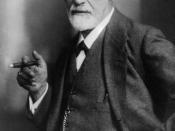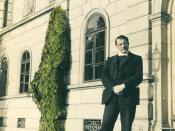Why We Dream
For centuries, scientists have been trying to figure out why our brains play these nightly shows for us we call dreams. Throughout the many years of research, scientists still toss around theories about dreaming which essentially fall into two categories: The idea that dream are only physiological stimulations and the idea that dreams are psychologically necessary. Dreams are believed to have religious connotations or spiritual meanings, however many could debate that dreaming is a form of mental therapy. Dreams are widely dependent on one's imagination, but they are related with reality symbolically.
Various research on dreams have made a theoretical divide. Physiological theories, for example, are based on the idea that we dream in order to exercises various neural connections that are believed to affect particular types of learning. Psychological theories, on the other hand, are based on the idea that dreaming allows us to sort through problems, events of the day or things that are requiring most of our attention.
Many researchers could argue that perhaps it is a combination of the two theories. Two of the most known researchers are Dr. Sigmund Freud, who falls under the psychological camp, and Carl Jung, who studied under Freud, but later went his own direction.
Dr. Freud's theories are fixated upon the idea of repressed longing, which are the desires that we aren't able to express in a social setting. Dreams allow the unconscious mind to act out those inadmissible thoughts and desires. Freud's theory focuses primarily on sexual desires and symbolism. For example, cylindrical objects in a dream represent a penis, while an enclosed object with an opening represents the vagina. Dreaming about a train entering a tunnel would therefore represent sexual intercourse.
Another theory proposed by J. Allan Hobson is called activation-synthesis theory of dreams.


